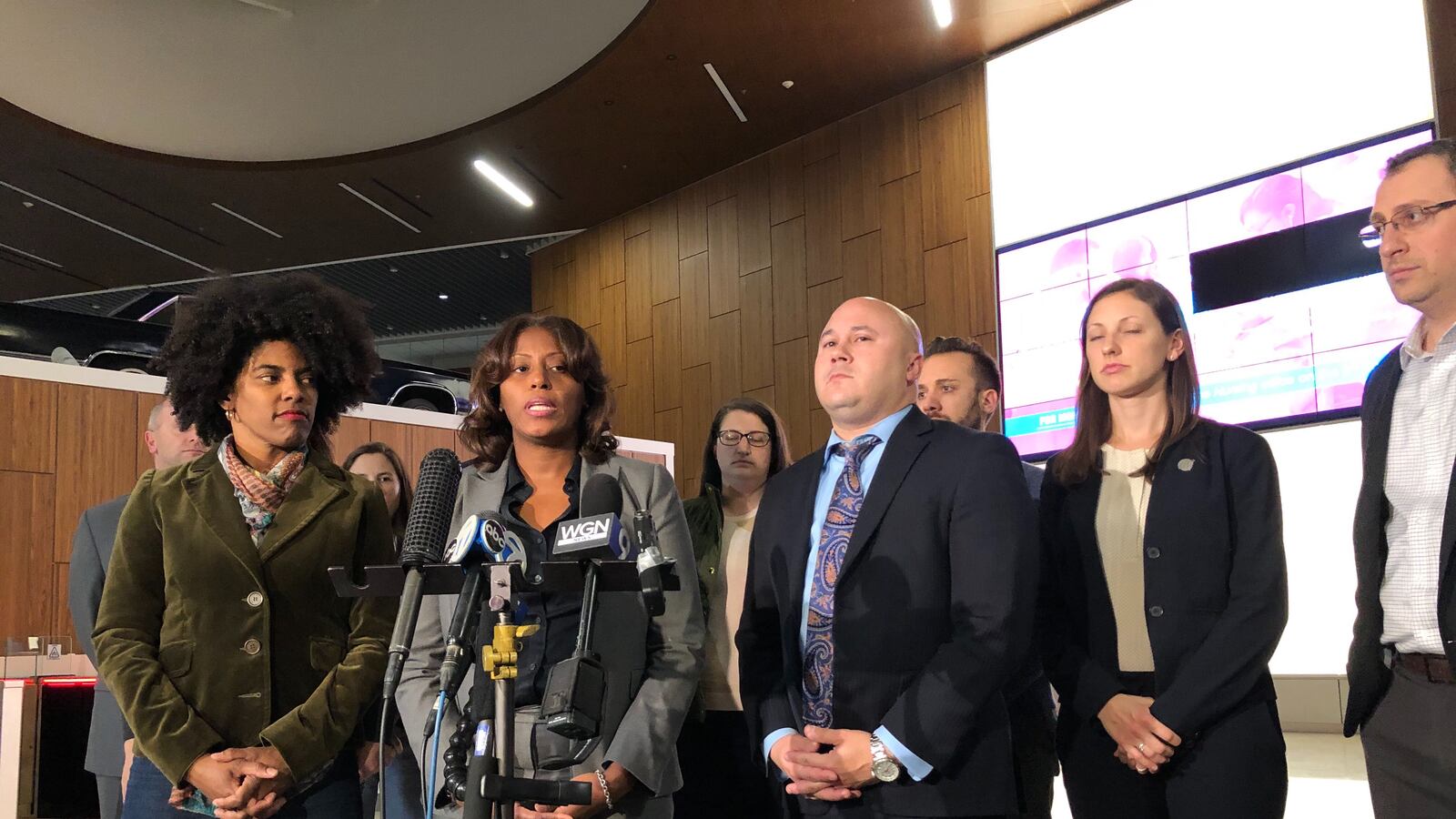Despite marathon bargaining that stretched into the wee hours of Tuesday morning, the Chicago Teachers Union and the city failed to reach an agreement on a new contract.
That means the Chicago teachers strike now enters its ninth day, with no school or after-school activities for more than 300,000 students.
The sides are near agreement on class size and staffing, but talks foundered over the contentious issue of increasing teacher prep time, according to city officials.
Speaking to press after 2 a.m., weary city negotiators said they were frustrated to end a long day of bargaining without a deal but planned to head back to the table a few hours later in the morning.
“We really had some strong substantive conversations at the table,” said LaTanya McDade, the second-in-command of Chicago Public Schools. “On… issues like class size and staffing we have gotten the closest we have ever been.”
The teachers union’s general counsel, Robert Bloch, said the union had laid out a proposed agreement that met many of their demands for equity, and hoped the city would respond affirmatively Tuesday morning. “We hope the city can find the resources to complete an agreement,” Bloch said.
Bloch declined to give additional details on what the agreement contained, but said it offered creative solutions to address sticking points.
Unlike previous daily press conferences during the negotiations, neither union leadership nor rank-and-file bargaining members spoke at the update.
In separate talks, the union representing bus aides, custodians and other support staff reached a tentative agreement with Chicago Public Schools late Sunday. That deal awaits ratification by SEIU Local 73 members and the school board. But SEIU leaders said their members will remain on the picket line with teachers until the teachers strike concludes.
On Tuesday, the teachers union is expected to hold a rally at the site of the controversial Lincoln Yards development project, which will be funded in part by a special city fund intended to spur development in blighted areas and that the union argues should be redirected to schools.

